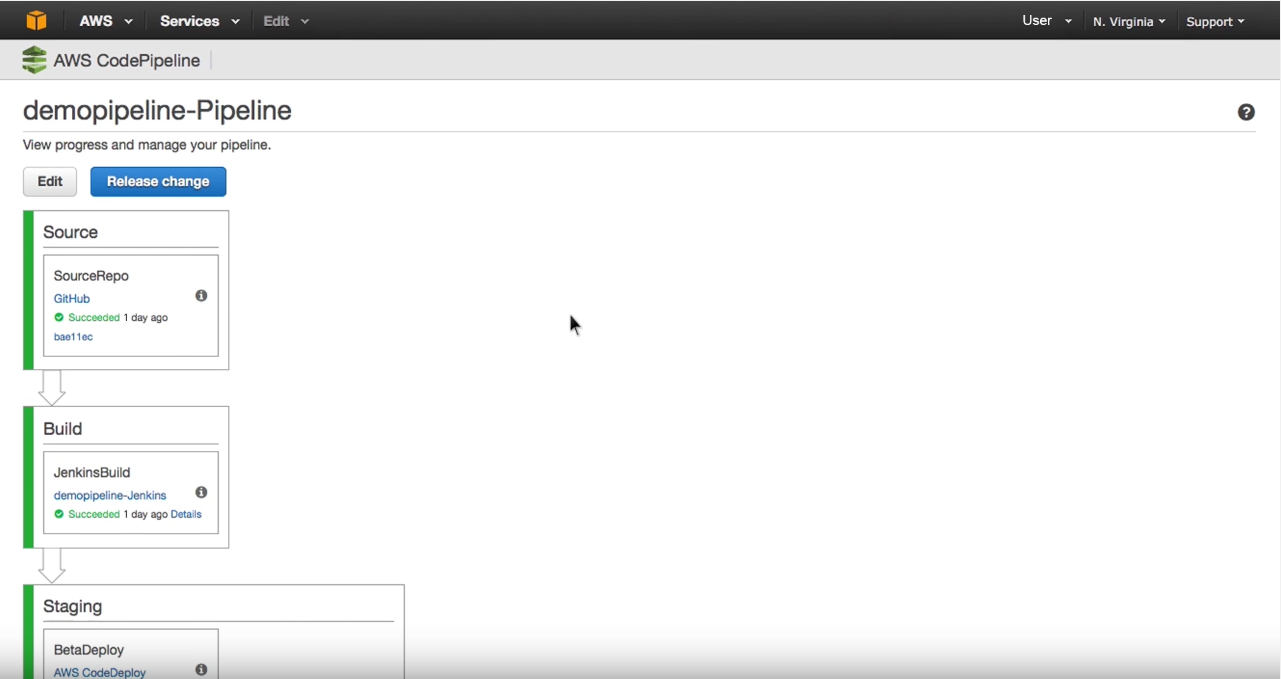AWS CodePipeline is a continuous delivery service for fast and reliable application and infrastructure updates. CodePipeline builds, tests, and deploys your code every time there is a code change, based on the release process models you define. This enables you to rapidly and reliably deliver features and updates. You can easily build out an end-to-end solution by using our pre-built plugins for popular third-party services like GitHub or integrating your own custom plugins into any stage of your release process. With AWS CodePipeline, you only pay for what you use. There are no upfront fees or long-term commitments.
Get Started With AWS for Free
Create a Free AccountReceive twelve months of access to the AWS Free Tier and enjoy AWS Basic Support features including, 24x7x365 customer service, support forums, and more.


AWS CodePipeline automates your software release process, allowing you to rapidly release new features to users. With CodePipeline, you can quickly iterate on feedback and get new features to customers faster.

Automating your build, test, and release process allows you to easily test each code change and catch bugs while they are small and simple to fix. You can assure the quality of your application or infrastructure code by running each change through your standardized release process.

AWS CodePipeline allows you to model the different stages of your software release process through a graphical user interface. You can specify the tests to run and the steps to deploy your application and its dependencies.

With AWS CodePipeline, you can immediately begin to model your software release process. There are no servers to provision or set up. CodePipeline is a fully managed continuous delivery service that connects to your existing tools and systems.

AWS CodePipeline can easily be extended to adapt to your specific needs. You can use our pre-built plugins or your own custom plugins in any step of your release process. For example, you can pull your source code from GitHub, use your on-premises Jenkins build server, run load tests using a third-party service, or pass on deployment information to your custom operations dashboard.


